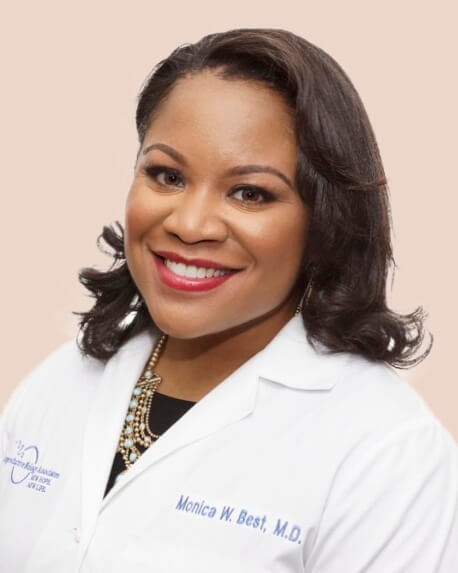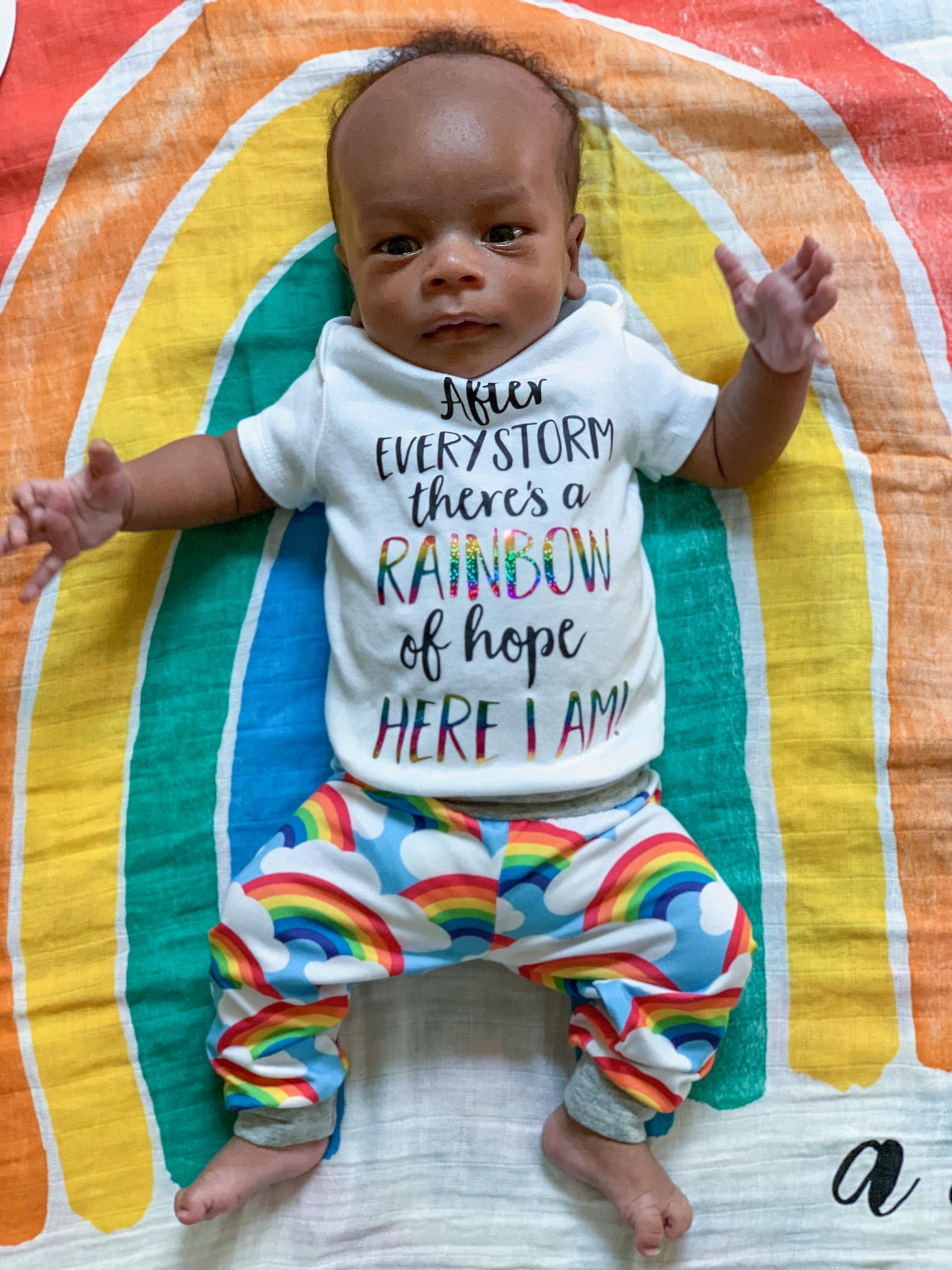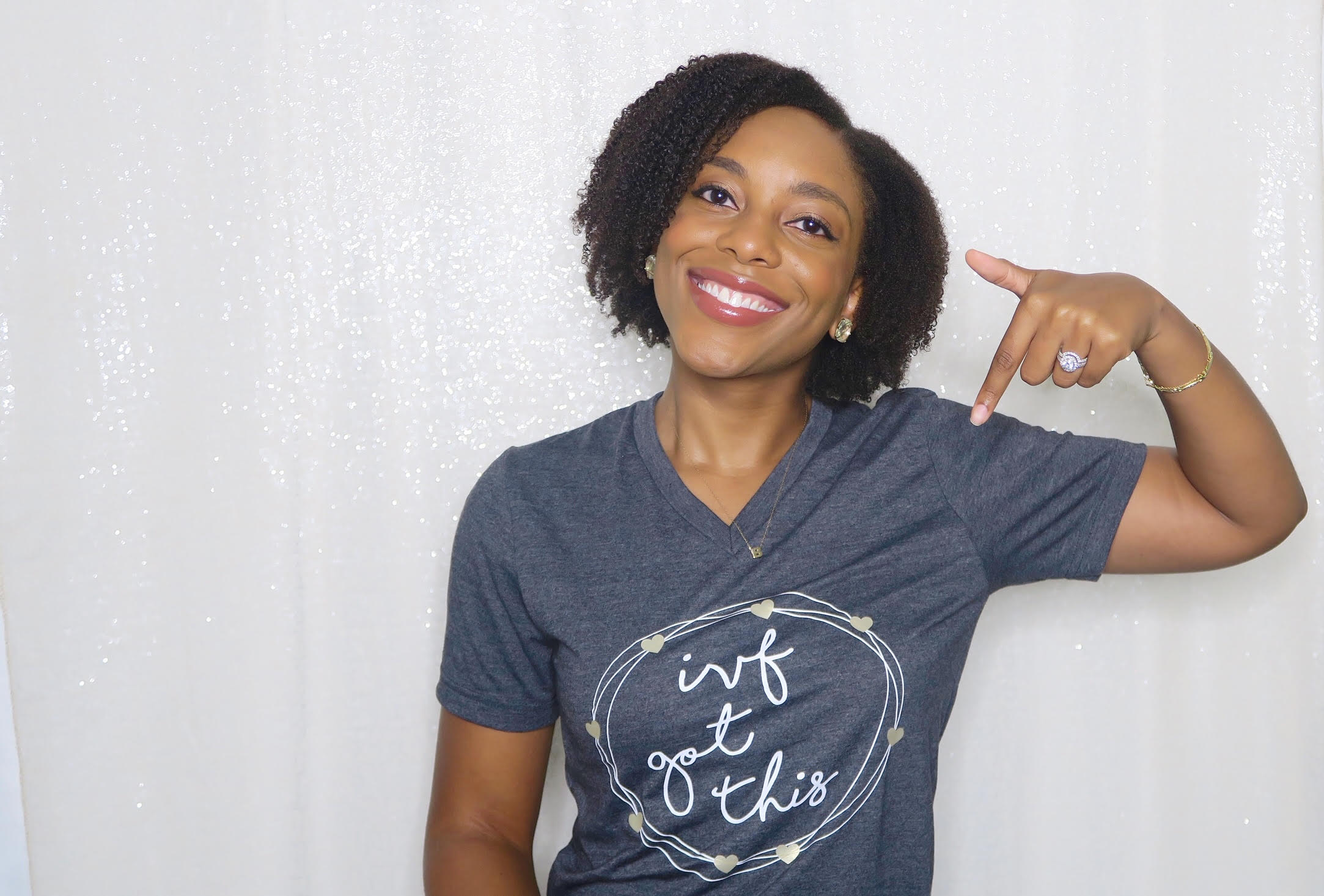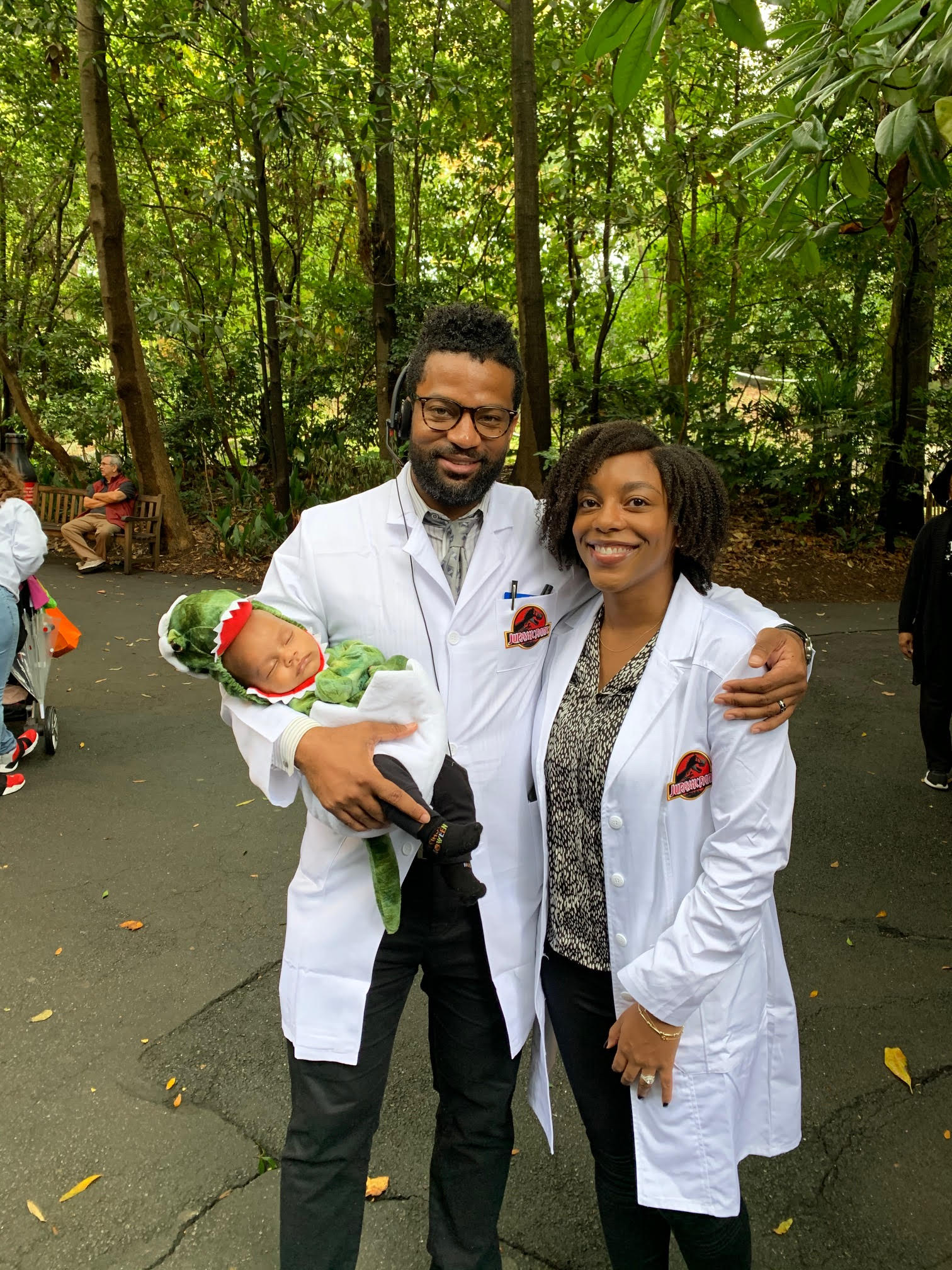Tomorrow, August 22, is Rainbow Baby Day. For those who aren’t familiar with the concept, a Rainbow Baby is a child born after a pregnant person experiences miscarriage or pregnancy loss.
In celebration of the day, we spoke to two Black women who have experienced infertility first hand and have welcomed a child into the world on the other side of that painful and isolating journey.
More often than not women don’t speak openly and honestly about infertility and miscarriages, so there exists a lot of unspoken shame around what is a common occurrence.
Reproductive endocrinologist, Dr. Monica Best, who works at the Reproductive Biology Associates (RBA), in Atlanta, Georgia shared that” In your twenties, if you achieve a pregnancy, your miscarriage risk is 15-20%. In your early thirties, that risk is 30-35 percent. By the time you reach your forties, you’re probably looking at 45-50 percent of any pregnancy you have ending in miscarriage.”
And while our parents’ generation was having children in their twenties and thirties, our society has shifted family planning back an entire decade and women are having children in their thirties and forties.

Source: Reproductive Biology Associates / rbaivf.com
Dr. Best said this issue is of particular concern for African American women.
“And for African American women that shift is particularly notable because we are the fastest growing group of entrepreneurs in the country. We are also among the most educated in the United States. So when you take those factors, into account, we’re pursuing careers. We’re pursuing education and deferring childbearing. And while we’re pursuing educational and career goals, we might not settle down until later. So it’s particularly notable in our population. That’s why we have to be aware of what ovarian physiology entails and maybe perhaps taking steps to preserve fertility earlier in our reproductive life when we know we’re going to be delayed in our childbearing. So we can freeze our eggs when we’re younger so that we have more eggs available and more quality eggs available the younger we are.”
Brittney Cain, a vlogger and mom, and one of Dr. Best’s former patients knew that she always wanted to have children. And after she and her husband Doug celebrated their one-year-anniversary, she got off birth control.
But in the midst of trying, Cain learned that she had polycystic ovary syndrome or PCOS. The condition varies from person to person but in Brittney’s case she did not ovulate every month.
At another clinic, Brittney went through seven rounds of ovulation induction—where they give you a pill to make you ovulate and then you have timed intercourse. After that she did a few round of intrauterine insemination.
Eventually, she transferred to RBA where she began working with Dr. Best.
Brittney said, “Dr. Best was the first provider who made me feel like I was being heard. Now, in my medical care, I realize this isn’t sufficient enough. I have to find another Dr. Best.”
Brittney was able to conceive the natural way but would learn that she had a molar pregnancy and would require a DNC—a procedure to evacuate pregnancy tissue from the uterus.
Dr. Best explained that a molar pregnancy occurs in 1 in 1,000 pregnancies in the U.S.
She explained that “with natural conception we have a single sperm that fertilizes a single egg. And what happens is the nucleus, which contains the genetic material from the sperm and the egg fuses as a part of fertilization.
But with a molar pregnancy, the sperm is going fertilize an egg that’s lost its nucleus. So that egg has lost its DNA. So instead of the fused DNA replicating and the cells dividing, the sperm replicates and forms this cluster of cells that resemble grapes on ultrasound.
Depending on the type of molar pregnancy, this can become a cancerous mass.”
Cain said the miscarriage lasted for several months. “That benched me from trying from March until November. So that was a really hard experience. Going through infertility, you always have to wait and then being told to wait even more.”
To cope with the loss, Brittney went to see a therapist who specialized in therapy and she also began sharing her story.
“I went to Facebook and Instagram, I wrote this really long post and I revealed all that we had been going through. I wrote something like my husband and I have been going through infertility for years. And then this happened and we thought it was great. And now it’s not fine. And I’m not okay.
Being vulnerable about that, there were so many friends or friends of friends who messaged me and said, ‘Hey, this happened to me too but I never talked about it. I never dealt with it.’ So that kind of opened me up. After that, I started sharing on my social media. I documented our infertility journey on our Instagram and YouTube channel. And I think sharing has really helped me to process.
I didn’t see people who looked like me who were talking about it. When people think about going through a fertility treatment, you think of a very specific race, white woman, upper middle class. And I had been struggling for a few months, seeing a therapist. And I was just like, I wonder if anybody feels the same way that I do. So that opened me up to finding all these channels, actually listening and seeing other people who were going through it. I took that one. I was fine being the face in my circle.”
Eventually, Brittney went through a round of in vitro fertilization (IVF) with Dr. Best. She did one round of egg retrieval. Due to her PCOS, she was able to retrieve more than enough eggs. Brittney was still in the process of waiting for the pregnant tissue from the pregnancy to disappear. So while her egg retrieval was in August, she wasn’t able to transfer the fertilized egg back until November.
Thankfully, the procedure was successful and her son Kai was born on August 15, 2019.
He just celebrated his first birthday. Because she documented her story, people from all over were able to celebrate with her in the journey.
“So people have known about my son from the very beginning. And I think that’s a really cool thing to think about. He’s been surrounded by love from so many people since he was an egg, an embryo in the freezer.”
But the pregnancy didn’t end the anxiety Brittney had about bringing a child into the world.
“I was completely anxious the whole time. Going though infertility alone, it’s really hard to digest. Is this really happening? Is this really going to happen? And then going through a loss, you know how that feels. Luckily my birthday is in December, there were holidays. There were a lot of things to keep me distracted at the time. I turned 30 that year.
We had our first ultrasound a few days before Christmas. Everything was fine with that ultrasound but I’m still a worrier. Like, ‘Was the heartbeat not fast enough? What does this mean?’ We’ve been through ultrasound craziness before.”
Thanks to science, Brittney and her Doug were able to know the sex of their baby long before most couples would.
On Christmas Eve they learned they were having a little boy.
“Then when I had to leave RBA—they call it graduation—I was really sad because the level of care and concern you go through—that’s when the anxiety ramped up. I was like, ‘Are you sure you can’t stay here forever?’
I remember my OB saying, ‘Oh you’re one of us now. You’re normal.’ But I was thinking, after everything I’ve gone through, I don’t feel normal.
So I just took it one day at a time, positive manifestations. ‘This day, I’m pregnant. We’ll worry about tomorrow later.’ And I took it day by day.
And as the weeks went on, I started worrying about (the Black maternal mortality rate). Now I have to survive. It’s horrible. “
But even after the birth of her son there were new things to consider.
“When he was born, I was like, ‘What do I do with him? You’re just going to leave me with him?’ I don’t think I was able to exhale really, until he was born. But you never stop worrying, you just worry in a different way.”
Brittney shared that even a year later looking at her son Kai is surreal.
“You still look at them like ‘I can’t believe you’re here.’ Especially this week when I’m reminiscing about everything. I don’t want to diminish traditional conception but this is so cool how you were made, how you got here and you’re a little person with opinions now.
We’re just so thankful. Especially with everything going around with racial injustice, raising a Black son is a whole other type of anxiety I have. You’re trying to put yourself in the parents’ shoes. And I think about how hard we fought for people to treat him any type of way for the color of his skin—I haven’t come to terms with that.”
When asked what she would say to other women struggling with infertility and staying encourage throughout the process, Brittney said, “There are definitely times where I lost hope during this period. And I think that’s okay. I think that’s a human reaction to trauma. And infertility is a form of trauma. I think the best thing that I learned through RBA is having an open relationship with your providers. You have to feel like you’re being heard. And also to advocate for yourself.”
She also suggested that women be in search of community during this time.
“Find your crowd. There’s somebody who’s been going through the same thing you have. Find them and bounce ideas off of each other and use each other for support. I think that’s one of the key—if I hadn’t announced publicly that we were going through infertility, I wouldn’t have found these women who I now count as my friends.”












